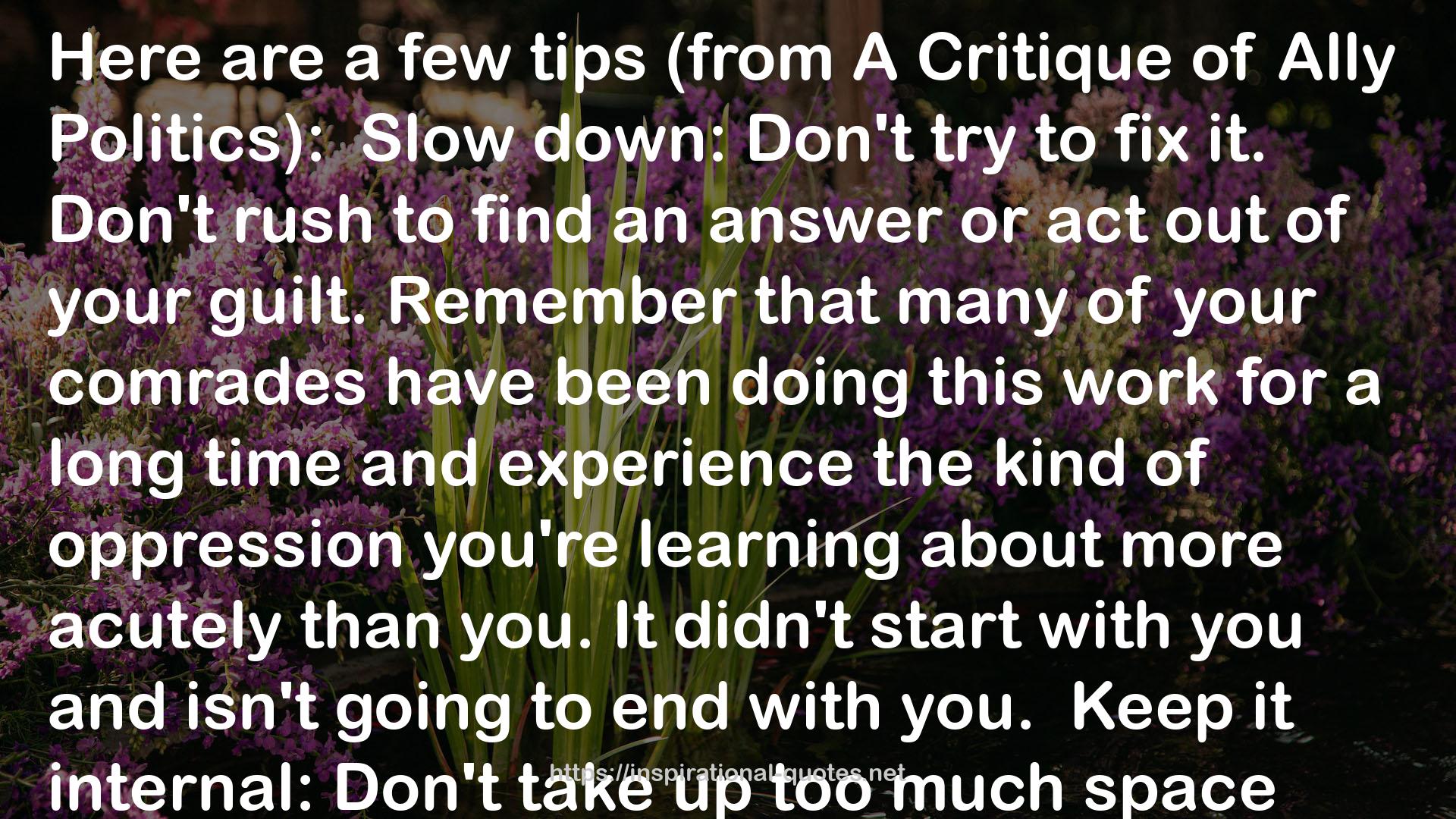" Here are a few tips (from A Critique of Ally Politics):
Slow down: Don't try to fix it. Don't rush to find an answer or act out of your guilt. Remember that many of your comrades have been doing this work for a long time and experience the kind of oppression you're learning about more acutely than you. It didn't start with you and isn't going to end with you.
Keep it internal: Don't take up too much space with your thoughts and emotions. Be sensitive to the fact that folks are in a variety of places in relation to what you're working through; don't force conversations on others, especially through the guise of public organizing.
Write about it: Give yourself the unedited space to feel all the things you need to, but know that it may hurt others if you share your feelings unthinkingly.
Read about it: Look for resources from people of a variety of political ideologies and experiences of identity to challenge yourself and get the widest range of input.
Listen to older people: Listening to stories from your eighty-year-old African American neighbor when you're working through questions around racism will likely be though provoking, regardless of their political ideology or your life experience. Don't underestimate what a little perspective can do for you.
Don't make your process the problem of your comrades: Be careful not to centralize yourself, your stake in fixing the problem, or your ego. Work it out on your own and with close friends and mentors. "
― M.
Image for Quotes

